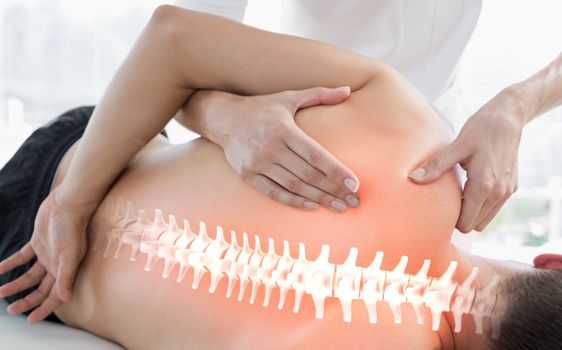Osteopathy
Osteopathy is a system of holistic diagnosis and treatment that seeks to promote health and healing.
When making an individual diagnosis, emphasis is placed very much on the musculo-skeletal system (to include muscles, bones, joints and ligaments) and its relationship to the other systems of the body.
Manual therapy and advice is used to treat patients with a wide variety of complaints. Osteopathic treatment is safe and effective and tailored to individual patients and their specific concerns.
Osteopaths are highly trained professionals and regulated by the General Osteopathic Council by UK law. They recognised as allied health care professionals (AHPs) by NHS England (this means they have the same level of regulation as dentists and physiotherapists).
When can osteopathy help?
People visit osteopaths to help with a wide variety of problems including:
Back pain
Neck pain
Shoulder pain
Headaches
Jaw and facial pain
Minor sports injuries
Musculo-skeletal issues during & after pregnancy
Knee and hip pain
Arthritis
Work station related problems
What to expect at your first appointment?
During an initial appointment with an osteopath, a full case history and examination will happen first. This will involve lots of questions about your problem so that your osteopath can fully understand the issues. It will also guide the osteopath to know when things would be better dealt with by another professional such as a doctor and they will advise you as such.
After your case history and examination, a diagnosis will usually be made and explained to you. Treatment will then usually begin during the first appointment.
As part of an osteopathic examination, you will usually be asked to remove some of your clothing so that your movement and posture can be taken into account. Please do let your osteopath know if this makes you feel uncomfortable and feel free to bring or come wearing comfortable clothing such as shorts and a vest.
How many treatments will I need?
Once a diagnosis has been made, you will be given some indication of the likely number of appointments that will be needed to resolve your problem. Each person and condition is unique and so this timeframe will vary between people. Some acute problems can be dealt with in just one or two sessions. Chronic problems may require a longer course of treatment however. Many patients also voluntarily choose to see their osteopath periodically on a maintenance basis. Charlotte always aims to resolve your problem as quickly as possible and you will never be under pressure to book more appointments than you would like to. The treatment plan may evolve with time and Charlotte will always try to communicate this with you.


